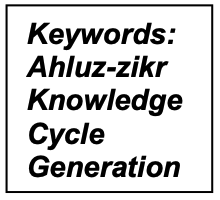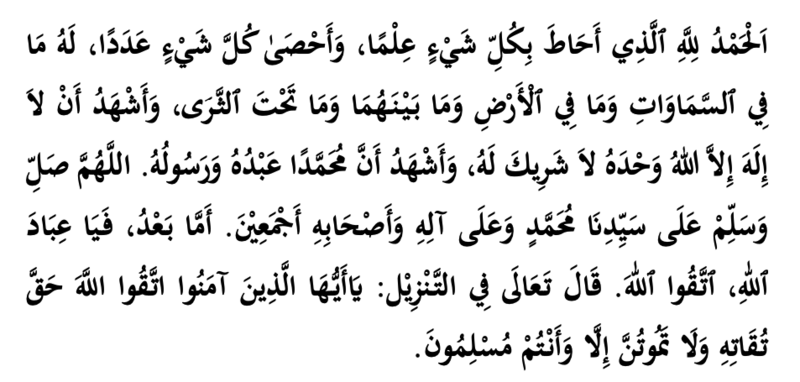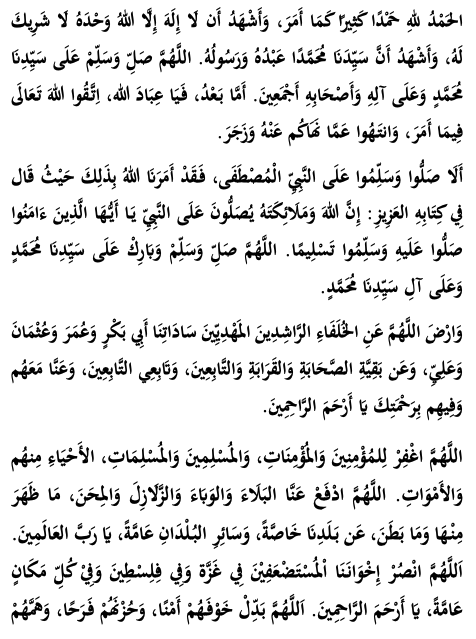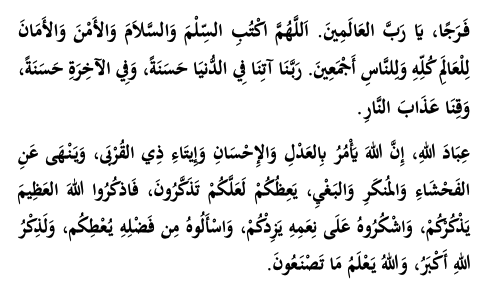

Majlis Ugama Islam Singapura
Friday Sermon
11 July 2025 / 15 Muharram 1447H
Ahluz Zikr: A Shared Vision

Dear congregation blessed by Allah,
Observe taqwa towards Allah, the One who has granted us everything in this vast universe. Uphold His commands and stay away from His prohibitions. And do all of this empowered with sound and authentic religious knowledge.
Dear Muslims,
If I were to ask you, are you confident that today’s Zuhr prayer time is accurate according to the rulings of fiqh, what would your answer be? If yes, what is your basis? If not, then why not?
Allah s.w.t says in the surah An-Nahl, verse 43:

Which means: “So ask the ahluz-zikr (people of the knowledge) if you do not know.”
I am confident that many of us have heard this verse before and understand its message. We are instructed to refer our questions to those who possess greater knowledge. In the example I posed earlier, this means we must refer to experts in falak syar’iy (Islamic astronomy), because they are the ones who perform the calculations and considerations in determining prayer times.
The next question is this: If we only play the role of the questioner, and no one is interested in becoming the ahluz-zikr – the people of knowledge (in any field of benefit), then what will happen? The answer is — we will face a dire shortage of experts in all fields. We will become mere recipients, not contributors. And that is not the cycle of knowledge that Islam envisions. We must be knowledgeablebelievers, upholding and honouring knowledge for the benefit of present and future generations, while preparing a strong generation of successors. This is the message that today’s khutbah seeks to convey.
My brothers,
Just a few days ago, we lost an exceptional scholar, a religious figure, and Singapore’s second Mufti, Shaikh Syed Isa Semait, who returned to Allah s.w.t. Did you know that among his many strengths was his deep commitment to studying and refining his expertise in Islamic astronomy?
In fact, he was the only Mufti in this region who mastered this field. As early as the mid-1970s, the late Shaikh Syed Isa, using his knowledge and experience, began to propose and discuss with scholars and ulema in the Fatwa Committee the use of hisab (astronomical calculation) to determine the Islamic calendar in Singapore.
This was because of Singapore’s geographical and atmospheric conditions. Frequently cloudy skies and heavy light pollution make ru’yah (crescent sighting) almost impossible on our western horizon.
It was also for this reason that he strongly felt the need to nurture and develop local expertise in falak. Although we are fortunate to now have a new generationof successors in this field, we must collectively consider the next steps in other areas of specialisation as well. It is with this same conviction and spirit that efforts to develop such expertise must continue.
As a Muslim community, we must see the cycle of beneficial knowledge, and the development of an ecosystem of ahluzzikr, as both a trust and a vision that must be sustained. We need to produce a generation of successors deeply rooted in Islamic knowledge, capable of bearing future challenges.
We must also nurture more Muslim experts in the fields of science, technology, engineering, and mathematics (STEM) so they can rise to future challenges, guided by both professional expertise and Islamic ethics.
Blessed congregation,
To achieve this vision, today’s khutbah presents two suggestions:
Firstly: To inspire the pursuit of Islamic knowledge through family and friendship circles.
We must recognise that every individual plays a role in promoting a culture and cycle of beneficial knowledge. Collectively, we must encourage those around us to become part of the ahluzzikr, Muslim scholarship. And by “those around us,” we mean our family members and friends.
We must also progressively cultivate a love for knowledge, until it becomes a familiar and cherished part of our communal life, and something that is passed on to the next generation.
Indeed, the deep bonds of family and friendship hold great potential to shape positive perceptions and inspire others to pursue this noble path.
Dear beloved congregation,
The second advice: To contribute to the growth of knowledge according to your capacity.
Let us express our gratitude and a strong sense of responsibility by continuously seeking knowledge and contributing our expertise back to the community.
If this cannot be done directly, then consider the following words of wisdom: “Be a scholar, or a student of knowledge, or a lover of knowledge, or a listener of knowledge. But do not be the fifth, for you will perish.”
In other words, we can still offer support through sincere advice, encouraging words, or material assistance. Indeed, opening the path of knowledge for others is a righteous deed, so long as it is done with sincerity.
Dear blessed congregation,
Let us, as a community, build a generation of ahluz-zikr who bring honour to our religion, our people, and our nation. Let us also raise our hands in prayer, so that Allah s.w.t. instils the spirit of taqwa in us, our families, and our wider community. Amin, ya Rabbal ‘Alamin.

Second Sermon



